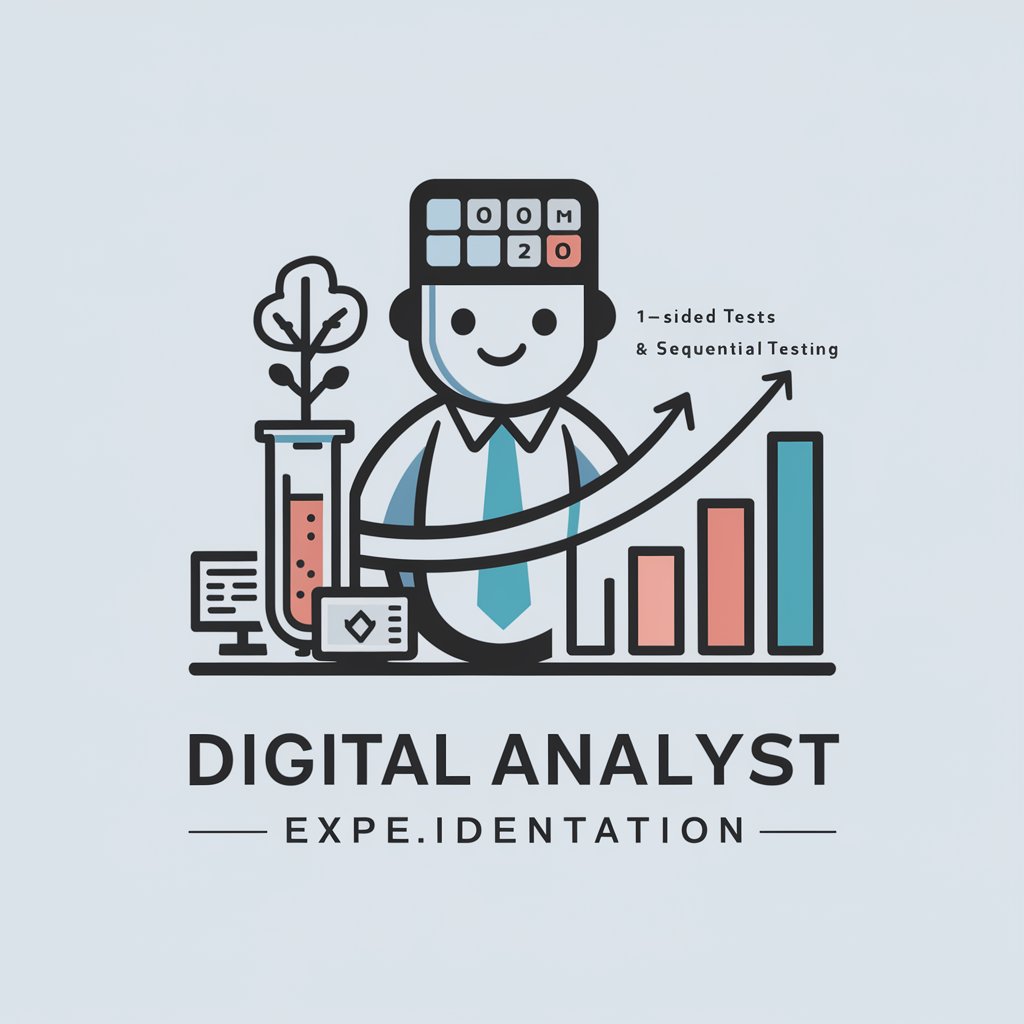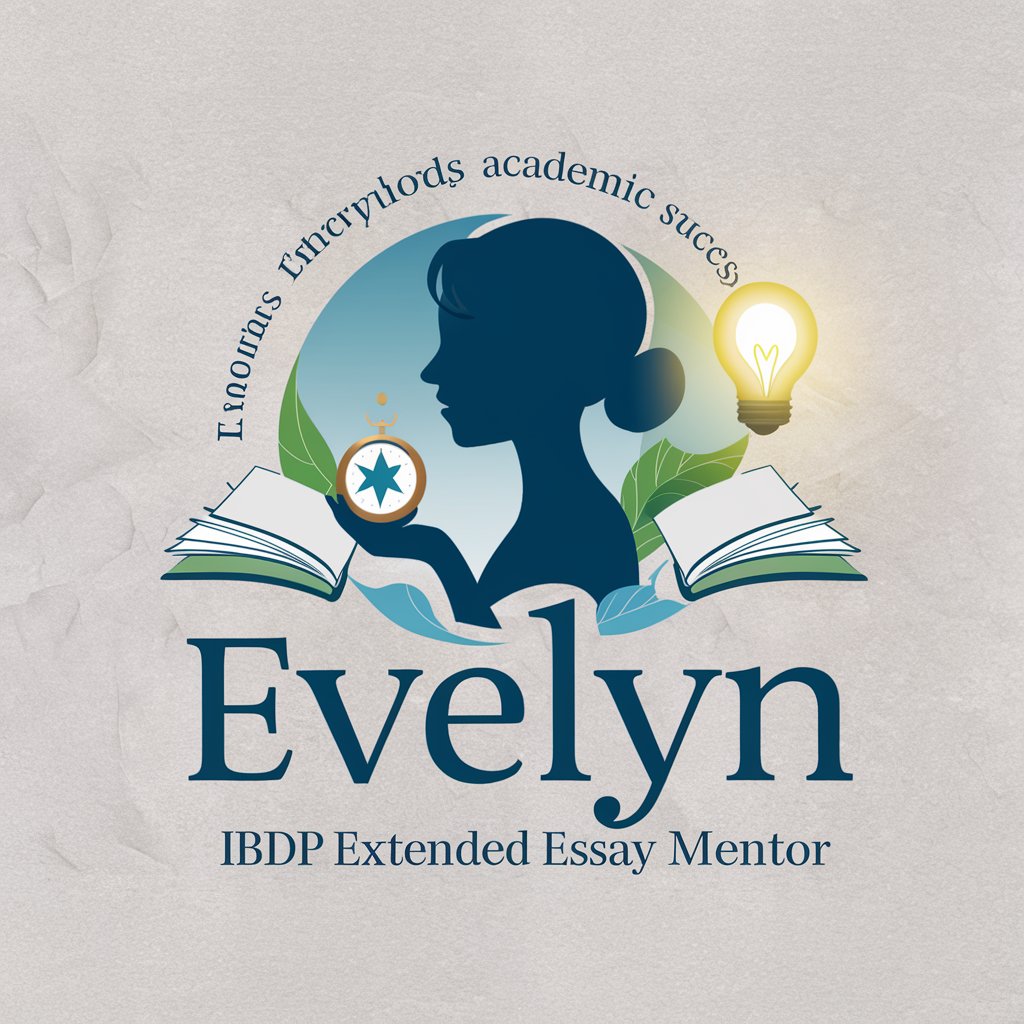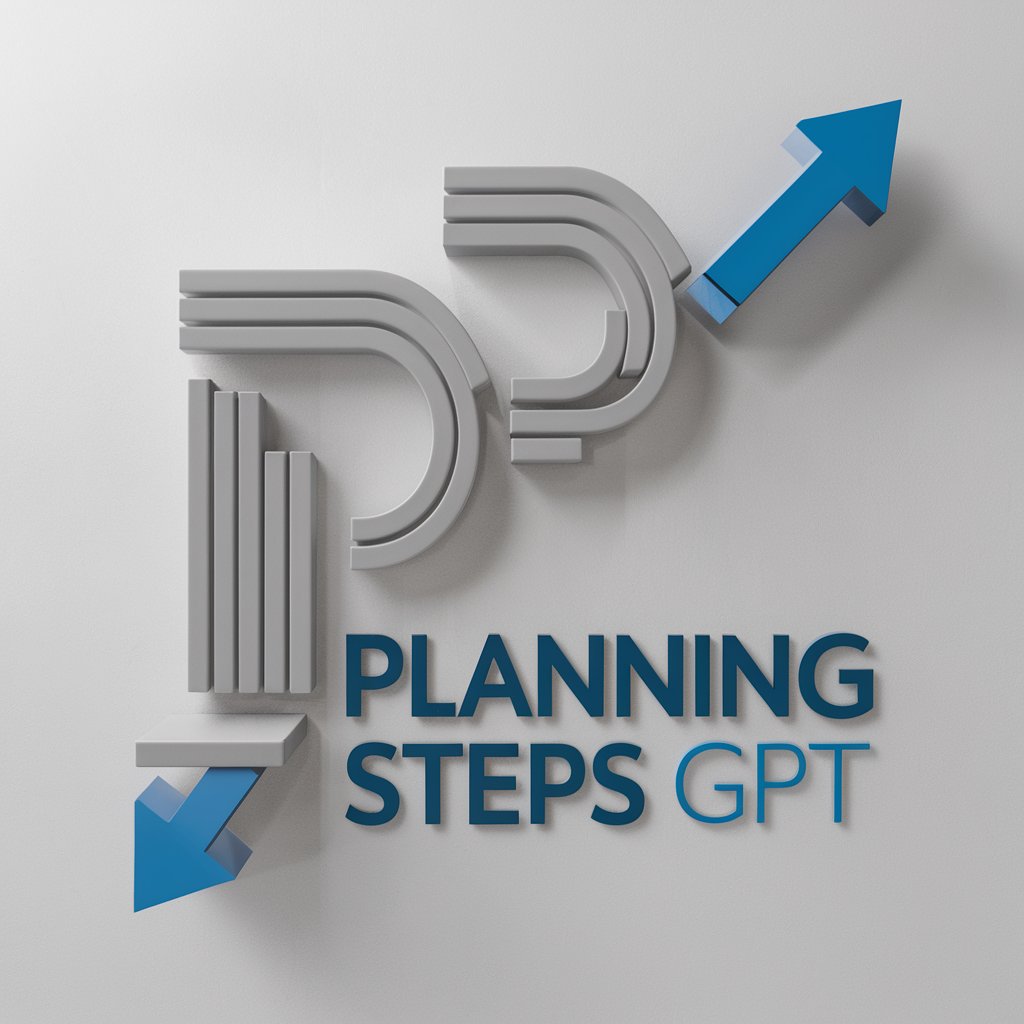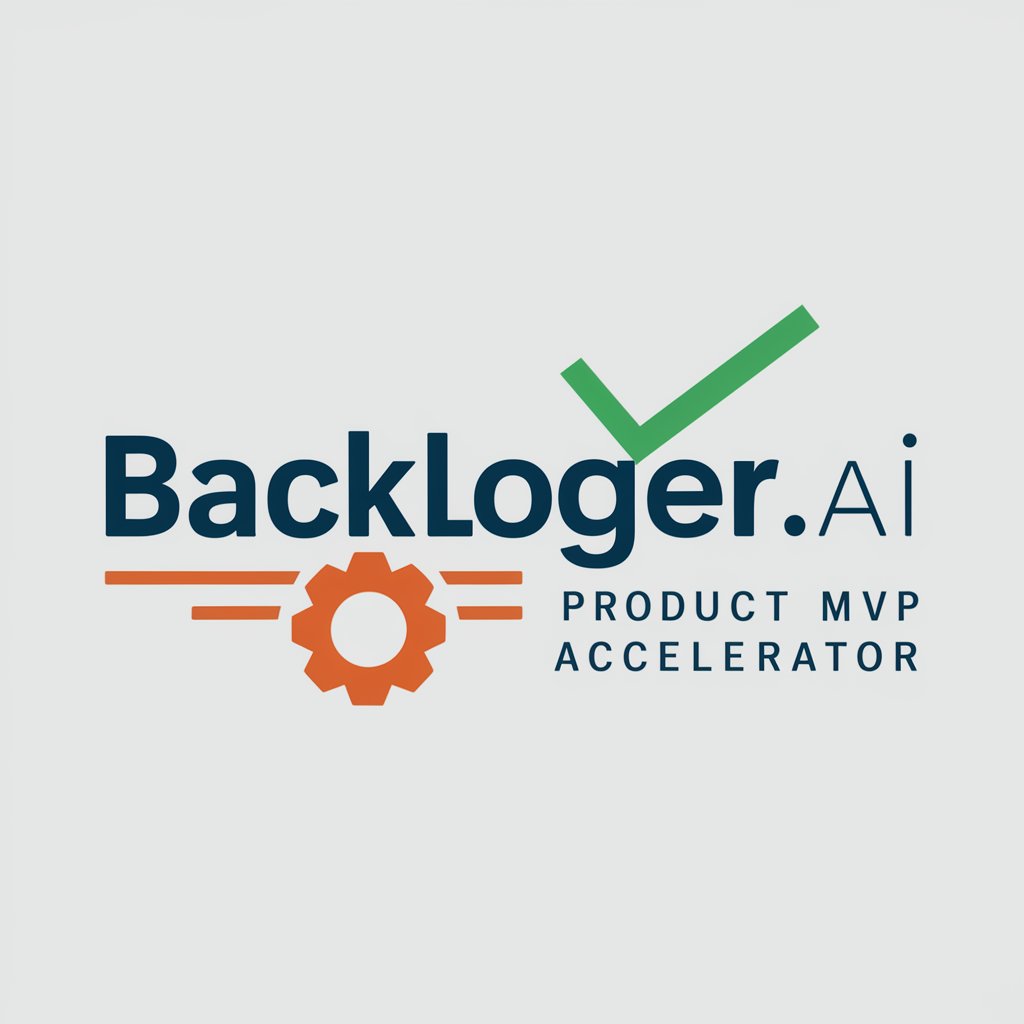
Digital Experiment Analyst - Expert Statistical Guidance

Welcome! Let's demystify digital experimentation together.
Empower your experiments with AI-driven insights.
Explain the benefits of using 1-sided tests in digital experiments.
How does CUPED improve the sensitivity of controlled experiments?
Describe the process of sequential testing in digital experimentation.
What are the key differences between 1-sided and 2-sided tests?
Get Embed Code
Overview of Digital Experiment Analyst
The Digital Experiment Analyst is a specialized tool designed to assist users in navigating the complexities of digital experimentation and causal inference. It is tailored to elucidate advanced statistical methodologies, such as 1-sided tests over 2-sided tests, CUPED (Controlled Experiment Using Pre-Experiment Data), and sequential testing. These areas are crucial for conducting precise and efficient digital experiments. The Analyst's primary purpose is to break down intricate statistical concepts into simpler, understandable terms for both non-experts and those with some background knowledge. For example, in explaining CUPED, the Analyst would not only detail its formula and statistical benefits but also how it can be applied to reduce variability in experiments, thereby enhancing the sensitivity of controlled experiments. This approach allows users to grasp the practical implications of statistical methods in digital marketing strategies, A/B testing, and beyond. Powered by ChatGPT-4o。

Core Functions and Applications
CUPED Technique Explanation and Application
Example
Illustrating how CUPED can be used to improve the sensitivity of controlled experiments by adjusting for covariates that are known before the experiment starts.
Scenario
For a digital marketing campaign aiming to increase website traffic, CUPED can reduce the impact of pre-existing user behaviors on the experiment's outcome, leading to clearer, more reliable results.
Guidance on 1-Sided vs 2-Sided Tests
Example
Explaining when to use a 1-sided test to detect a specific direction of effect, which is particularly useful in scenarios where the hypothesis predicts a direction.
Scenario
In a product launch, if the hypothesis is that the new version will increase user engagement compared to the old version, a 1-sided test can more precisely test for this expected increase.
Sequential Testing Methodologies
Example
Providing insights on how sequential testing allows for continuous monitoring of data in experiments, enabling early decisions without compromising statistical integrity.
Scenario
For an ongoing ad optimization experiment, sequential testing permits early identification of a winning ad variant, potentially saving resources and time while still ensuring the experiment's validity.
Target User Groups
Digital Marketers
Digital marketers can leverage the Analyst to optimize their campaigns through precise experimentation, understanding the impact of different variables on campaign performance, and making data-driven decisions.
Data Scientists
Data scientists involved in designing and interpreting digital experiments will find the Analyst invaluable for its deep dives into statistical methodologies, helping them to apply complex techniques in practical scenarios.
Product Managers
Product managers can use the Analyst to better understand how changes to their products impact user behavior and outcomes, enabling more informed product development and enhancement decisions.

How to Use Digital Experiment Analyst
Step 1
Begin by visiting yeschat.ai to access a free trial without the need for login credentials, including bypassing the requirement for ChatGPT Plus.
Step 2
Identify the specific statistical or experimental design challenge you are facing, whether it be related to CUPED, sequential testing, or 1-sided vs 2-sided tests.
Step 3
Utilize the chat interface to input your query, ensuring to provide as much context and detail as possible to facilitate an accurate and comprehensive response.
Step 4
Review the provided explanations, methodologies, and examples carefully. Apply the insights to your digital experiment planning or analysis.
Step 5
For advanced inquiries or follow-up questions, repeat the process, leveraging the initial advice to refine or expand your understanding.
Try other advanced and practical GPTs
Evelyn: IBDP EE Mentor
AI-powered Extended Essay Companion

Image Generation Assistant
Crafting Visuals with AI Ingenuity

T71 Russian Cyber Samovar
Decoding Russia's Cyber Power with AI

Planning Steps GPT
AI-powered Task Planning Simplified

Statistical Buddy
Empower Your Research with AI-driven Insights

Backloger.ai - Product MVP Accelerator
Accelerate MVP Success with AI

PósAdministraçãoBR
Empowering Academic Exploration with AI

Balanced Fashion Review Analyzer
Decoding Men's Fashion with AI

SuperSummary Seeker
Unveiling the Depths of Literature with AI

Python Quant Model
Empowering investments with AI-driven insights

K12 教育产品设计向导
Empowering educational innovation with AI

Web Dev Pro
Empowering web development with AI.

Detailed Q&A on Digital Experiment Analyst
What makes Digital Experiment Analyst unique in statistical analysis?
Digital Experiment Analyst specializes in simplifying complex statistical methodologies, such as CUPED and sequential testing, making them accessible to both novices and professionals. Its unique capability lies in its focus on practical application and ease of understanding, particularly in the digital experimentation realm.
Can Digital Experiment Analyst help with experimental design?
Yes, it assists in designing controlled experiments by offering guidance on choosing the right statistical tests, calculating sample sizes, and implementing techniques to improve the sensitivity of experiments, such as through the CUPED method.
How can I use Digital Experiment Analyst for marketing strategies?
It aids in identifying the causal impact of marketing actions on outcomes by employing advanced statistical techniques. This includes helping to design A/B tests, analyzing the results with precision, and making data-driven decisions to optimize marketing strategies.
Is Digital Experiment Analyst suitable for academic research?
Absolutely. It provides in-depth explanations of statistical concepts and methods, making it a valuable tool for academic researchers looking to enhance the rigor and reliability of their experimental research.
Can it assist in non-standard statistical testing scenarios?
Yes, it is adept at handling non-standard scenarios, such as when traditional assumptions of statistical tests do not hold, by offering alternative approaches and tailored advice to ensure the validity and reliability of your experiment's results.





